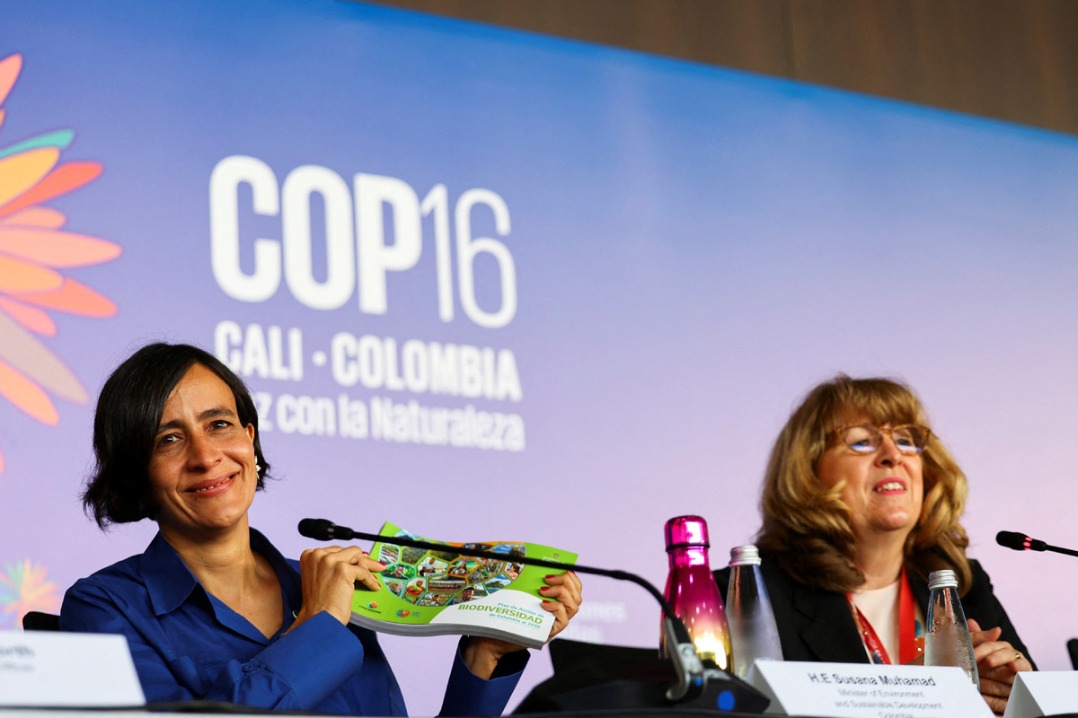COP16 honors indigenous groups' rights


CALI, Colombia — The 16th Conference of the Parties to the Convention on Biological Diversity wrapped up in Colombia on Saturday with a landmark acknowledgment of indigenous and Afro-descendant communities' essential role in protecting biodiversity.
After two weeks of discussions in the city of Cali, the final session of COP16 approved a work plan to permanently incorporate indigenous and local communities into the Convention on Biological Diversity.
COP16 President Susana Muhamad and Colombian Foreign Minister Luis Gilberto Murillo hailed the decision, calling the event a "people's COP", especially in advancing the rights of Latin American and Caribbean communities.
"Our lands, rich in natural resources, have long been home to indigenous and Afro-descendant communities whose sustainable practices are critical to addressing global environmental challenges," Murillo said.
Indigenous leader Camila Paz Romero called the decision "unprecedented in the history of global biodiversity agreements", saying it will compel countries to respect and preserve traditional knowledge held by indigenous and local communities.
With the theme "Peace with Nature", COP16 achieved several major outcomes, including a deal on how companies in sectors such as pharmaceuticals and cosmetics should pay for the use of genetic information from biodiversity in their research and development.
Genetic data from nature are used in a wide range of products from nutrient-enriched rice to stonewashed denims distressed using enzymes derived from microbes.
The payments could generate billions of dollars for nature conservation that would be directed to a fund that would distribute half of the proceeds to indigenous peoples and local communities.
"Businesses are committed to supporting biodiversity goals and have been engaging throughout the process," said Daphne Yong-d'Herve, an expert on the use of genetic information with the International Chamber of Commerce.
Xinhua - Agencies

































